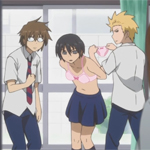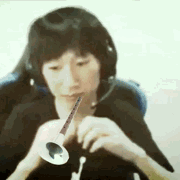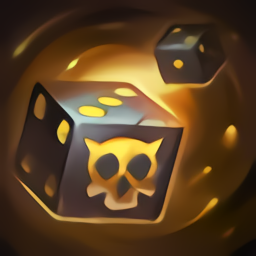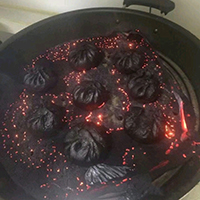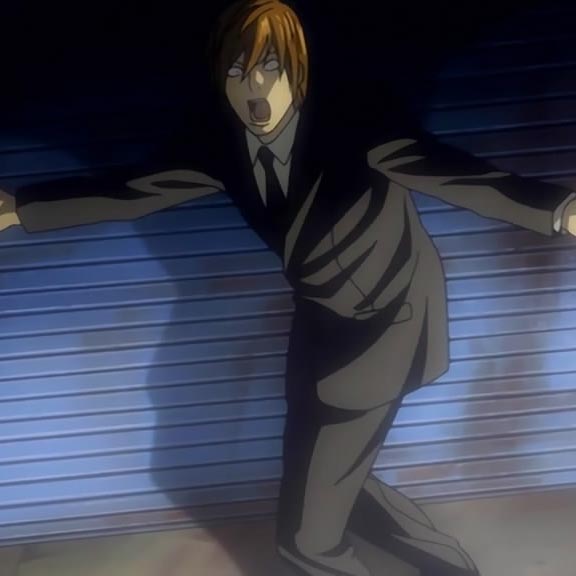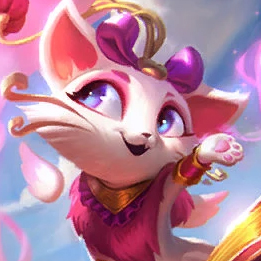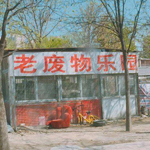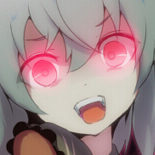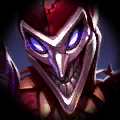索引串[ ゚ω゚]
#902389
分享The Cure的单曲《The Holy Hour》: 网页链接
#903705
不行,还是要忍到打骨折 了,看评测发现战斗不如dos2就没什么兴趣了--可是就看了一眼,就一眼,艹,动心了
#903706
如果是去年的我可能就--还好那场梦已经结束了
#903707
未必有对胃口的剧情,这一点就足够了--唉,不如再刷一遍书和wiki
#903715
啊啊啊啊啊啊ghost trick要重制了!!!!
#907359
The Short & Curlies有熟肉了 是去年四月的事
#907360
>>Po.907359
哦快五月份,当时没心思关注消息--
哦快五月份,当时没心思关注消息--
#907383
・゚[ ノヮ´ ]大红你
__
:逆転検事2クリア記念?文若さんが思ったよりみったんの格好似合うような気がするんですがどうでしょう。しかし2も楽しかったー!
__
:逆転検事2クリア記念?文若さんが思ったよりみったんの格好似合うような気がするんですがどうでしょう。しかし2も楽しかったー!
#909281
>>Po.837628
He felt sick and lost and overwhelmed. Why hadn’t they just let him die, it would have solved everything, the machine could have sucked him in—he could have become one with it—and he would have forgotten all his failures just like that. Instead he was bleeding out like an animal in the back of a musty omnibus.
>>Po.835900
He felt sick and lost and overwhelmed. Why hadn’t they just let him die, it would have solved everything, the machine could have sucked him in—he could have become one with it—and he would have forgotten all his failures just like that. Instead he was bleeding out like an animal in the back of a musty omnibus.
>>Po.835900
#909285
>>Po.909281
这一段挺好。
以为和之前看的if一样提前下线,没想到走了原作故事线。
不管怎么样,够对我胃口
A moment later the pulp of his arm sputtered, breaking apart as the cylinders pulverized it, spitting white marrow, black blood, red blood, all the ichor that was in him. Bleeding out all the human. That was good. He was part of the machine, one with it as it clattered and clacked and pulled him further into itself. Whirring. Chattering. Rolling. Pounding out a rhythm, certain and sure. The very rhythm of life.
这一段挺好。
以为和之前看的if一样提前下线,没想到走了原作故事线。
不管怎么样,够对我胃口
A moment later the pulp of his arm sputtered, breaking apart as the cylinders pulverized it, spitting white marrow, black blood, red blood, all the ichor that was in him. Bleeding out all the human. That was good. He was part of the machine, one with it as it clattered and clacked and pulled him further into itself. Whirring. Chattering. Rolling. Pounding out a rhythm, certain and sure. The very rhythm of life.
#909286
这里的猜想是平时进厂,很合理。
毕竟最初也无法开张吃三年
毕竟最初也无法开张吃三年
#909290
>>Po.909285
The surgeon had finally arrived. He approached Enoch and introduced himself as a Dr. Doyle. Doyle was a youngish man with handsome features, white apron tied across his fine waistcoat, brown hair pulled back from his face, small half-moon spectacles glinting on his nose. He was healthy-looking, red-cheeked, a man who probably went home every night to a beautiful wife, robust children, and a hearty meal on the table. Enoch hated him on principle. Here was a man who had followed the same path he had, more or less, only he had been successful. He hadn’t lost his livelihood, his passion, his drive. He hadn’t been run out of university, nor had he been forced to scrape together a living through tedious, degrading, often underhanded means. And why? Why him, and not this man? It was fate, and nothing more, Enoch told himself. It could have been anyone in Lowgate Cemetery that night. I was unlucky, fixed by misfortune’s dread gaze. (But he had been poor in university, too; hadn’t the cost of resources for his work necessitated those stints of graverobbing in the first place? This surgeon had probably been born into money, had never had to worry about how much it cost to live and eat and work—but it did not do to dwell on such things.)
The surgeon had finally arrived. He approached Enoch and introduced himself as a Dr. Doyle. Doyle was a youngish man with handsome features, white apron tied across his fine waistcoat, brown hair pulled back from his face, small half-moon spectacles glinting on his nose. He was healthy-looking, red-cheeked, a man who probably went home every night to a beautiful wife, robust children, and a hearty meal on the table. Enoch hated him on principle. Here was a man who had followed the same path he had, more or less, only he had been successful. He hadn’t lost his livelihood, his passion, his drive. He hadn’t been run out of university, nor had he been forced to scrape together a living through tedious, degrading, often underhanded means. And why? Why him, and not this man? It was fate, and nothing more, Enoch told himself. It could have been anyone in Lowgate Cemetery that night. I was unlucky, fixed by misfortune’s dread gaze. (But he had been poor in university, too; hadn’t the cost of resources for his work necessitated those stints of graverobbing in the first place? This surgeon had probably been born into money, had never had to worry about how much it cost to live and eat and work—but it did not do to dwell on such things.)
#909293
>>Po.837628
“There is severe avulsion of the left forearm, as well as deep lacerations up to and past the elbow. Maybe the worst industrial accident I’ve ever seen a man suffer.”
“There is severe avulsion of the left forearm, as well as deep lacerations up to and past the elbow. Maybe the worst industrial accident I’ve ever seen a man suffer.”
#909294
>>Po.909293
Yes. Dispose of those ugly, broken bits of flesh. Crush them, erase them, I want them gone
Yes. Dispose of those ugly, broken bits of flesh. Crush them, erase them, I want them gone
#909296
>>Po.909294
Still he closed his eyes when the metal first bit into him, different as it was from the slow rolling kiss of the carding machine. But of course it was: these tools were wielded by a human, and human hands were imprecise and clumsy, incapable of a machine’s gentle touch. Distantly, Enoch felt muscle being sawed away, then bone; when he opened his eyes again he saw little flakes and strips of himself—his soft pieces, his hard pieces—falling down into a tub someone had brought over with the cart. Offal, thought Enoch. Human offal. Me, at my most base and crude, my most essential. The sound was overwhelming, horrific—crunch and grind and slice—nothing like the music the machine had made as it absorbed him. Doyle was scraping off the rough edges of bone now, filing him down like a sculptor might. Bone shards continued to fly every which way, pinging against the table and the floor, forming a bumpy layer over the blood and gristle already settling in the tub.
Still he closed his eyes when the metal first bit into him, different as it was from the slow rolling kiss of the carding machine. But of course it was: these tools were wielded by a human, and human hands were imprecise and clumsy, incapable of a machine’s gentle touch. Distantly, Enoch felt muscle being sawed away, then bone; when he opened his eyes again he saw little flakes and strips of himself—his soft pieces, his hard pieces—falling down into a tub someone had brought over with the cart. Offal, thought Enoch. Human offal. Me, at my most base and crude, my most essential. The sound was overwhelming, horrific—crunch and grind and slice—nothing like the music the machine had made as it absorbed him. Doyle was scraping off the rough edges of bone now, filing him down like a sculptor might. Bone shards continued to fly every which way, pinging against the table and the floor, forming a bumpy layer over the blood and gristle already settling in the tub.
#909298
|∀゚Upon discharge the doctors had told him he would not be able to live alone, not anymore—do you have a wife? they’d asked, a partner? children? any relatives at all who could help?; no, Enoch had said, no time for that, no time for forging relationships, no time for anything but work. They’d suggested he hire a live-in servant, then; Enoch had said he would consider it, but in truth he could not stomach the idea. The sad stares he would draw from strangers in the street would be pity enough without a nursemaid cooing over him too, thank you very much.
#909299
With one shoulder abduction he could… yes, he felt the arm turning, turning… and in less than three seconds the arm had made a complete revolution around his elbow, smooth as a dream.
Something like elation filled him, and he ran his flesh-and-blood hand down the brass skeleton as it came to a stop. “You,” Enoch breathed. “I’ve been waiting for you all my life, haven’t I?”
In response the arm clicked, and as Enoch moved—as he asked the arm to move with him—he marveled. He immediately began testing it, winding it here and there to provide more energy as needed. And he could not have been more stunned. It seemed the forearm mechanism could do everything. It could pick up pieces of lint, it could flex its fingers, it could hold a pen steady enough to draw straight lines, it could turn and manipulate a model with such precision that he laughed in delight to see it. He knew then that he would never file a patent for the prosthetic, for how could one profit off one’s beloved? One’s child? He would keep this for himself forever; he would die with it, be buried with it. This was no crude tool meant only to open doors and hold bags—this was a thing with a life all its own. No, more than that: it was just as alive as he was.
Enoch sat with the clockwork prosthetic for some time after giving it a run-through of basic and complex tasks alike, shifting to look at it from different angles, seeing how it caught the light from the fire crackling in the hearth. So beautiful. It was better than a real forearm—it could do more, so much more, and it would facilitate his work tenfold. It seemed absurd to him then—as he touched the machine he had made, breathed with it—that he had used the hospital’s wood-and-leather prosthetic for so long. It rested sad and forlorn against the wall next to the fireplace, and he sneered at it, a sudden rage filling him up. In that one incandescent moment the old prosthetic seemed to embody all his problems, all his doubts since the accident at the cotton factory (and before then, even: so he imagined in his agitated state). Those doctors had saved him, it was true, but it had been an insult to give him that thing, a deliberate nose-thumbing at his pride as a scientist. Yes, an insult!—and now that he had the clockwork prosthetic attached, now that it was part of him, the intent was clearer than it had ever been before. He could hear them now, snickering behind their hands: Fitting, isn’t it? Enoch Drebber, the invalid. He was once a grave robber, and now he has to use junk to get around—the same sort of junk he stole and sold for a pittance at market!
Without a second thought he rose, picked up the old prosthetic with the new (how the brass fingers clamped against the leather!; how the wood crunched under his vicelike grip!), and tossed it into the fire. The wood-and-leather contraption hit the logs with a burst of flame, driving clouds of smoke into the room. Enoch waved a hand in front of his face, his eyes tearing up from the heat and smoke, but he was happy, he was free—that old wooden thing was gone, and with it all of his doubts and demons of the past few years. All that was left was the clockwork prosthetic: sturdy, golden, new. As new and polished as Enoch’s grandest dreams, and as solid as the machine that had almost absorbed him so many months ago. It cranked happily as it moved, making all the sounds a machine should make, spoke where the wooden prosthetic had been silent. Yes, this arm sang to him, laughed with him, whispered to him in a voice more beautiful than a lover’s—more real than any human being he’d ever met. Kind, knowing. Whirring. Clicking. Buzzing into life.
The wood made the fire flare, turning the clockwork forearm gold, and the smell of burning leather filled the room, and Enoch knew, knew with all his heart: at last—at long last—he was complete.
Something like elation filled him, and he ran his flesh-and-blood hand down the brass skeleton as it came to a stop. “You,” Enoch breathed. “I’ve been waiting for you all my life, haven’t I?”
In response the arm clicked, and as Enoch moved—as he asked the arm to move with him—he marveled. He immediately began testing it, winding it here and there to provide more energy as needed. And he could not have been more stunned. It seemed the forearm mechanism could do everything. It could pick up pieces of lint, it could flex its fingers, it could hold a pen steady enough to draw straight lines, it could turn and manipulate a model with such precision that he laughed in delight to see it. He knew then that he would never file a patent for the prosthetic, for how could one profit off one’s beloved? One’s child? He would keep this for himself forever; he would die with it, be buried with it. This was no crude tool meant only to open doors and hold bags—this was a thing with a life all its own. No, more than that: it was just as alive as he was.
Enoch sat with the clockwork prosthetic for some time after giving it a run-through of basic and complex tasks alike, shifting to look at it from different angles, seeing how it caught the light from the fire crackling in the hearth. So beautiful. It was better than a real forearm—it could do more, so much more, and it would facilitate his work tenfold. It seemed absurd to him then—as he touched the machine he had made, breathed with it—that he had used the hospital’s wood-and-leather prosthetic for so long. It rested sad and forlorn against the wall next to the fireplace, and he sneered at it, a sudden rage filling him up. In that one incandescent moment the old prosthetic seemed to embody all his problems, all his doubts since the accident at the cotton factory (and before then, even: so he imagined in his agitated state). Those doctors had saved him, it was true, but it had been an insult to give him that thing, a deliberate nose-thumbing at his pride as a scientist. Yes, an insult!—and now that he had the clockwork prosthetic attached, now that it was part of him, the intent was clearer than it had ever been before. He could hear them now, snickering behind their hands: Fitting, isn’t it? Enoch Drebber, the invalid. He was once a grave robber, and now he has to use junk to get around—the same sort of junk he stole and sold for a pittance at market!
Without a second thought he rose, picked up the old prosthetic with the new (how the brass fingers clamped against the leather!; how the wood crunched under his vicelike grip!), and tossed it into the fire. The wood-and-leather contraption hit the logs with a burst of flame, driving clouds of smoke into the room. Enoch waved a hand in front of his face, his eyes tearing up from the heat and smoke, but he was happy, he was free—that old wooden thing was gone, and with it all of his doubts and demons of the past few years. All that was left was the clockwork prosthetic: sturdy, golden, new. As new and polished as Enoch’s grandest dreams, and as solid as the machine that had almost absorbed him so many months ago. It cranked happily as it moved, making all the sounds a machine should make, spoke where the wooden prosthetic had been silent. Yes, this arm sang to him, laughed with him, whispered to him in a voice more beautiful than a lover’s—more real than any human being he’d ever met. Kind, knowing. Whirring. Clicking. Buzzing into life.
The wood made the fire flare, turning the clockwork forearm gold, and the smell of burning leather filled the room, and Enoch knew, knew with all his heart: at last—at long last—he was complete.





